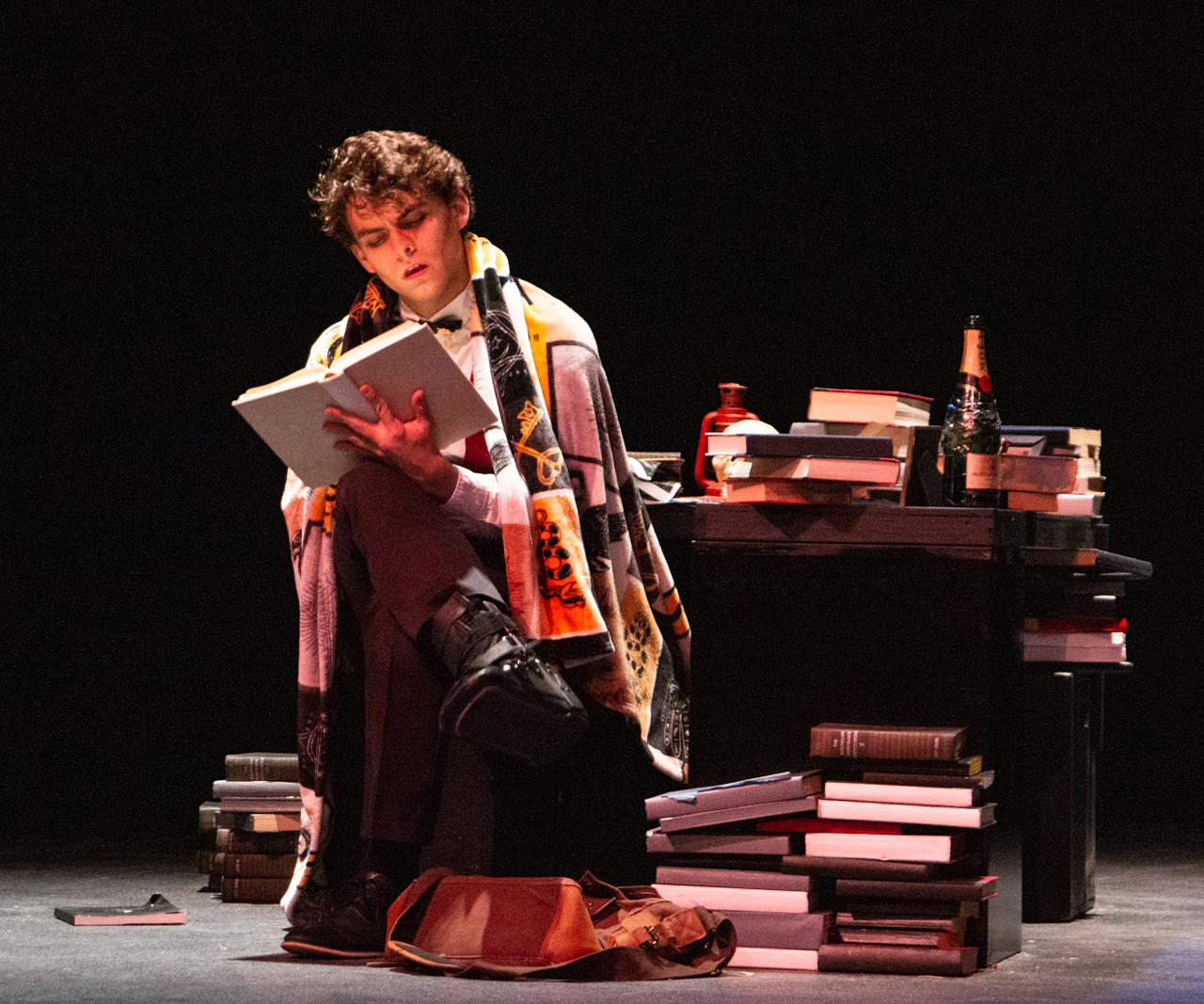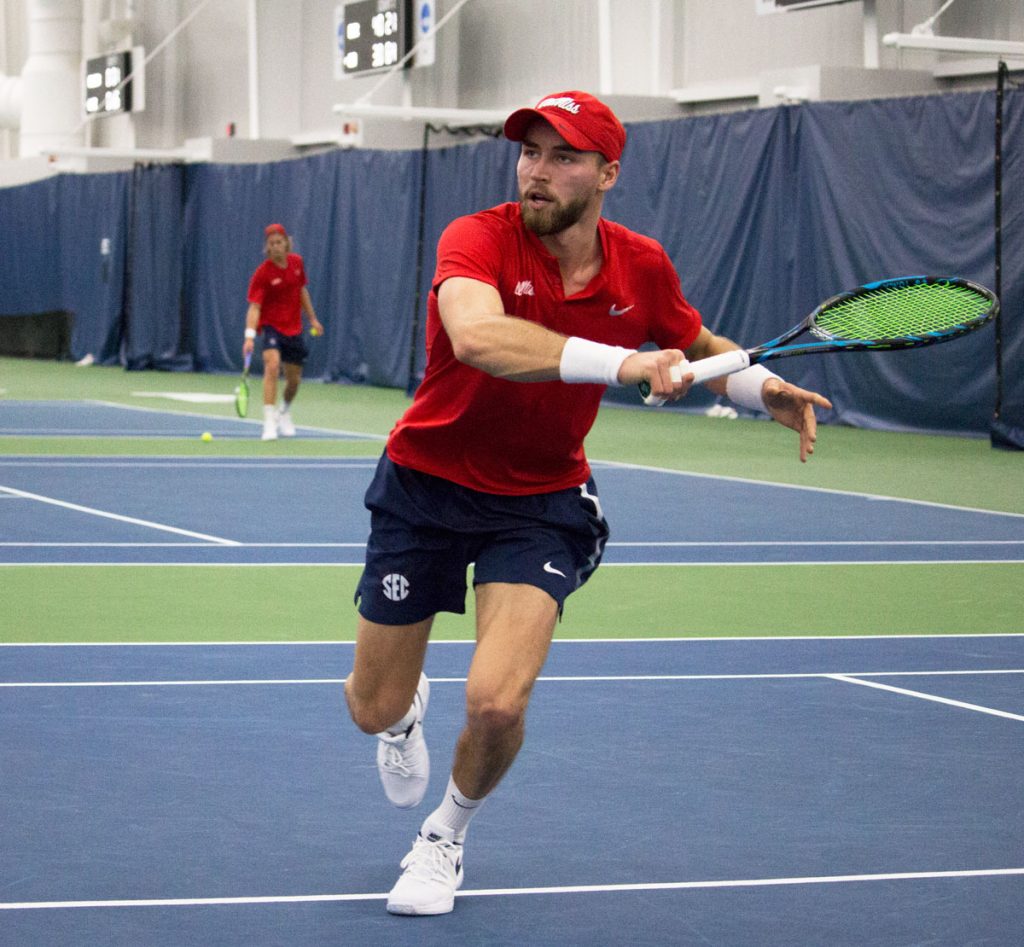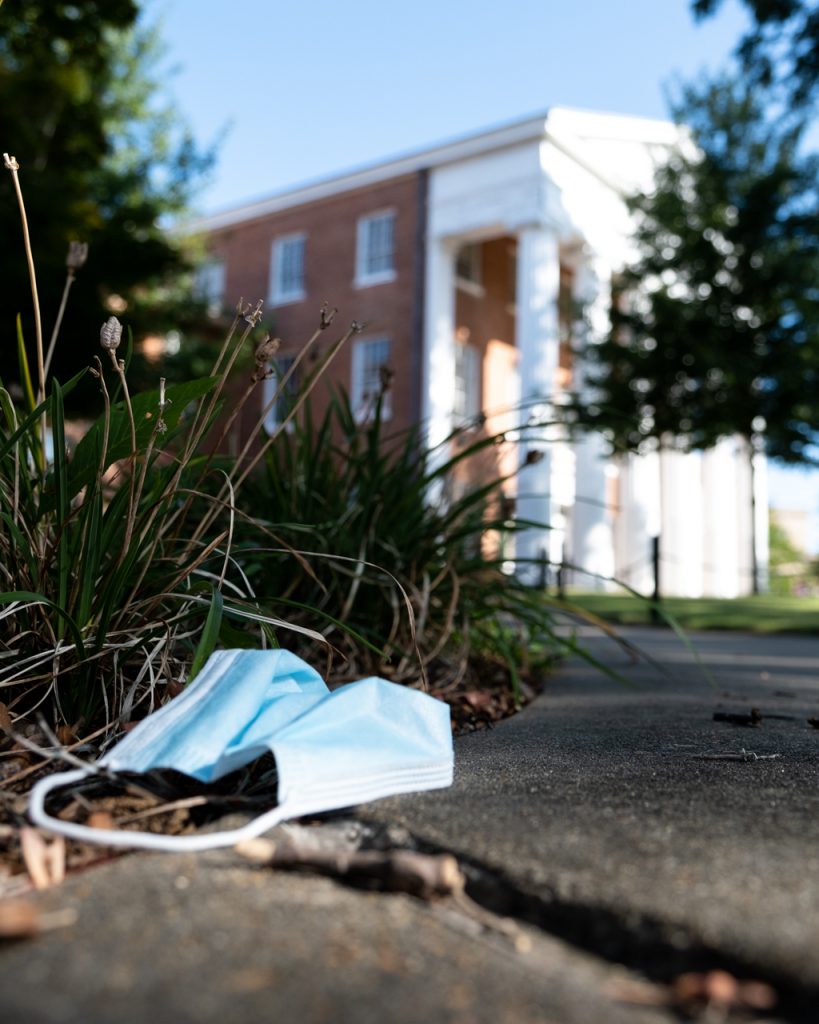The Theatre and Film Department at the University of Mississippi still plans to direct and perform new productions for the 2020-2021 school year,despite not being able to perform in front of live audiences.
The upcoming season will have two series of productions. The first will be a collection of radio plays written, directed and performed by students in the department. The second will be a new play, “Near/Far,” a project with a cast of nine masked creatures that explore the physical and emotional tensions of living in quarantine during a global pandemic.
“We were brainstorming about ways we could safely continue to make theater specifically, and I made the suggestion to do a particular kind of mask work and create a play based on the experience of living through the time of a global pandemic and quarantine,”said Lauren Bone Noble, director of “Near/Far” and associate professor of movement for the actor.
The mask work that Noble is incorporating into the play was first popularized by French stage actor and coach Jacques Lecoq, who was best known for his teaching methods that involved an emphasis on masks.
“He created this style of mask work where the masks are kind of like characters. We have specific characters, and the person who is wearing that mask will sort of have to create with their body a character around that mask,” Noble said. “We will be telling the story as if these creatures have wandered into a never-ending Zoom meeting.
The play’s cast is using Zoom for rehearsals, and when it is show time, students will record their performances from home using Zoom. Along with their masks and costumes, members of the cast will also receive a webcam, green screen and lights. In addition to the equipment, students will also be given guidance on how to properly set it up in their homes.
However, Noble said there are disadvantages to rehearsing and performing virtually.
“There is no replacement for the shared energy of people gathered in one place, you cannot replace that in a rehearsal hall, and you cannot replace that in a performance,” Noble said. “It’s a terrible loss.”
Cody Stockstill, assistant professor of scenic design, said he and two students are the primary designers of the show, and they worked with Noble over the summer to create the scenic design of “Near/Far.”
Stockstill says his student designers are still finding the best way to create the show’s virtual environment using Zoom and green screen technology.
“We are testing out right now how accurate it is via Zoom, and we are finding out that it’s extremely accurate, believe it or not, with Zoom’s algorithm for their backgrounds,” Stockstill said.
Even though the live performance will be edited before it is released, Stockstill said he and his student designers will limit the amount of editing they do because they want the play to feel like a live theatre performance, not a film.
Because of new CDC guidelines, audience members cannot attend in person. However, Michael Barnett, chair of the department of theatre and film said the department is working closely with the university to ensure that all classes, rehearsals and performances are done safely.
“We are hopeful that we will be able to engage new audience members,” Barnett said. “These new modalities will allow people from all over the country and beyond to be entertained and challenged by these stories.”
While virtual performances create new opportunities for technological innovation, they also create challenges for performing arts students who are not getting the experience of performing in front of a live audience.
“I think it negatively impacts us by not having those live productions because a lot of people in the program have not gotten to experience their first Ole Miss theatre show,” said Jaslyn Nicole Ballansaw, a senior fine arts major and member of the “Near/Far” cast. “So, it’s just a missed opportunity, but I’m glad the department is coming up with other ways to give those opportunities back to us.”
Audience members can stream the performances for free. The department wants the audience to be engaged in the production and not worry about additional expenses.
Barnett said that the department is still finalizing performance dates.
“They don’t want to lose touch with their audience, they want to continue telling the important stories that we tell in this industry,” Barnett said. “We think it’s vital that our students have an opportunity to work within those same mediums.
















